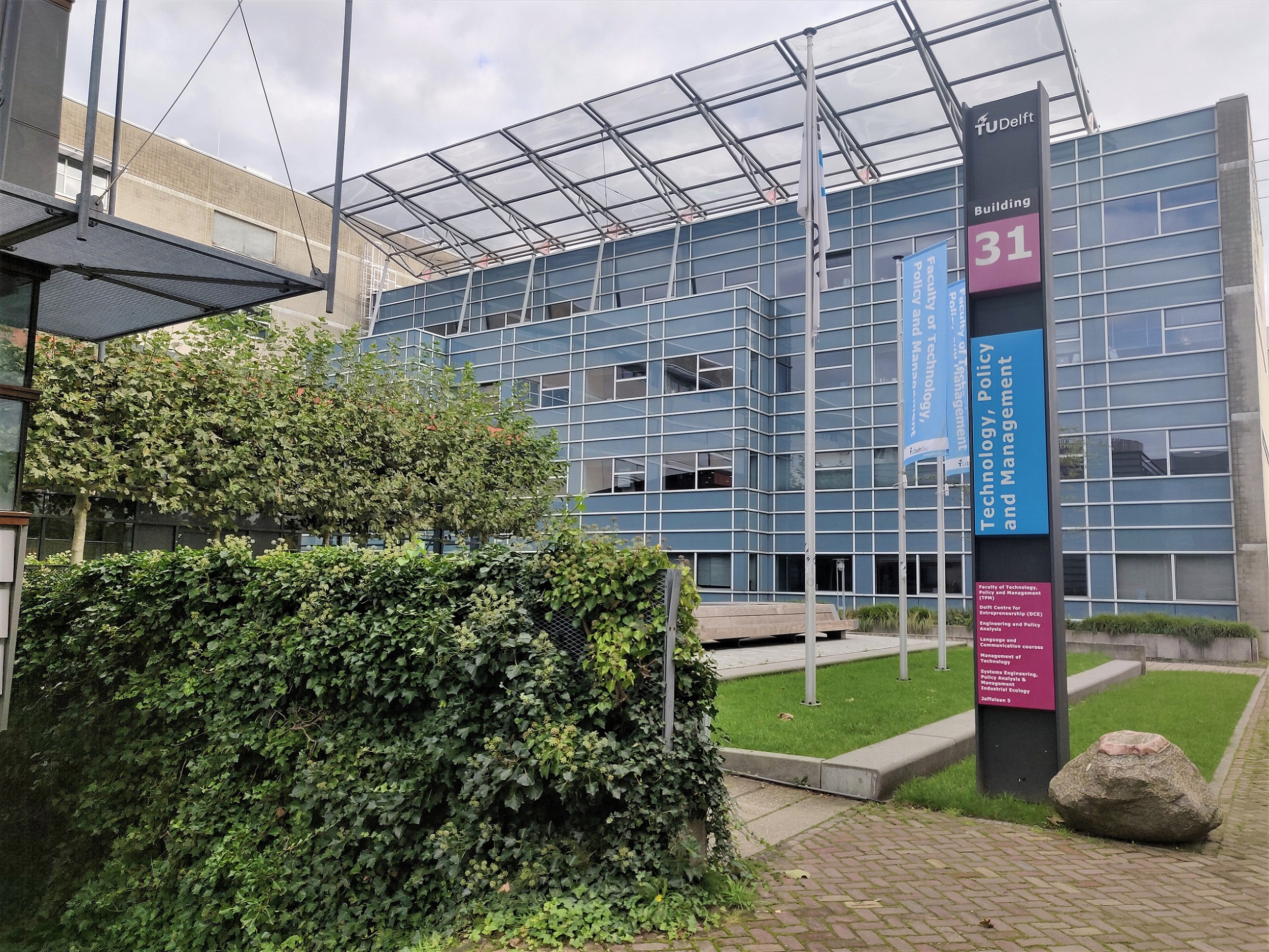The elections for the Works Council are going ahead. In contrast to three years ago, there are more candidates than seats. But the Personnel Committees are not doing as well.
At TBM only two candidates applied for the Personnel Committee. Meanwhile, it is three. (Photo: Marjolein van der Veldt)
In 2017 there were just as many candidates as seats (23) so there was no need for elections. Now there are 36 candidates from four parties for the 25 available seats. Among these parties, apart from the familiar FNV (one of the national trades unions) and Democratisch Beleid (democratic policy), is a new party, Academisch Belang (academic interest).
At the end of September, the Works Council Chair Biemla Sewnandan announced that, just as in 2017, the elections may not go ahead. So what happened between then and now? Works Council Secretary Erik Louw thinks that the newsletters and Works Council lunches helped. He also believes that Works Council members attended discussion sessions more often, which also raised their profile. Apart from these, efforts were put into actively finding candidates through visits to management teams, placements at the Works Council and digital drop-in sessions.
Apart from the Works Council, there are also 10 local participation councils in the form of Personnel Committees. These rarely need elections. The only places where elections are held are the Faculties of Aerospace Engineering and Electrical Engineering, Mathematics and Computer Science. One of the seats in each Personnel Committee is always occupied by a Works Council member, hence EEMCS also needs to run elections.
Little enthusiasm
What stands out is the low number of candidates at TPM. What is going on there? Simon Tiemersma, current and departing member of the TPM Personnel Committee, sees ‘little enthusiasm’ for participation at his Faculty. He suspects that this can partly be put down to the corona crisis. “You hear everywhere that people are enormously busy.”
Staff members can also have their voices heard outside the Personnel Committees
Tiemersma explains that the Faculty tried to motivate people to join the Personnel Committee through films, newsletters and personal conversations. But nobody turned up at a recent online question and answer session. Has the Personnel Committee been visible enough over the past few years? Has it had any successes? “We have had little muscle as we’re such a small group. And even if the Dean takes us seriously, we still have to deal with the bureaucracy. We have achieved some small things, such as bringing about social spaces at the Faculty and the appointment of a prevention officer for complaints. We also took a critical stance on the Engineering and Policy Analysis (EPA) study programme in The Hague.”
The EPA moved from Delft to The Hague in 2017. This summer, the Executive Board took the decision to prolong the location to 2025, even though there is no evidence that it being in The Hague has any added benefits. The Executive Board wants to grant it more time to prove itself.
Six is the minimum
Dean Aukje Hassoldt says that in the meantime, one more candidate will stand. It is still not enough though. She says that six is the minimum. “We will approach people who we think may be interested. We have already done so, but we can try again.”
What does Hassoldt believe is the reason for such little interest in the Personnel Committee at her Faculty? She does not believe that it is workload related as this is no higher than at other faculties. “Perhaps the priorities are different. We are continuously in the middle of whatever is going on, and certainly now with corona.” She also thinks that as ‘the lines of communication are relatively short’ at her Faculty, employees do not need a Personnel Committee to have their voices heard.
Nevertheless, Hassoldt says that there is still plenty for the Personnel Committee to do. For example, she is working on a new multi-year plan for TPM’s future. “The Personnel Committee has an important voice. It represents the interests of the staff.”
- The elections will take place on 3 and 4 November.
Do you have a question or comment about this article?
s.m.bonger@tudelft.nl


Comments are closed.